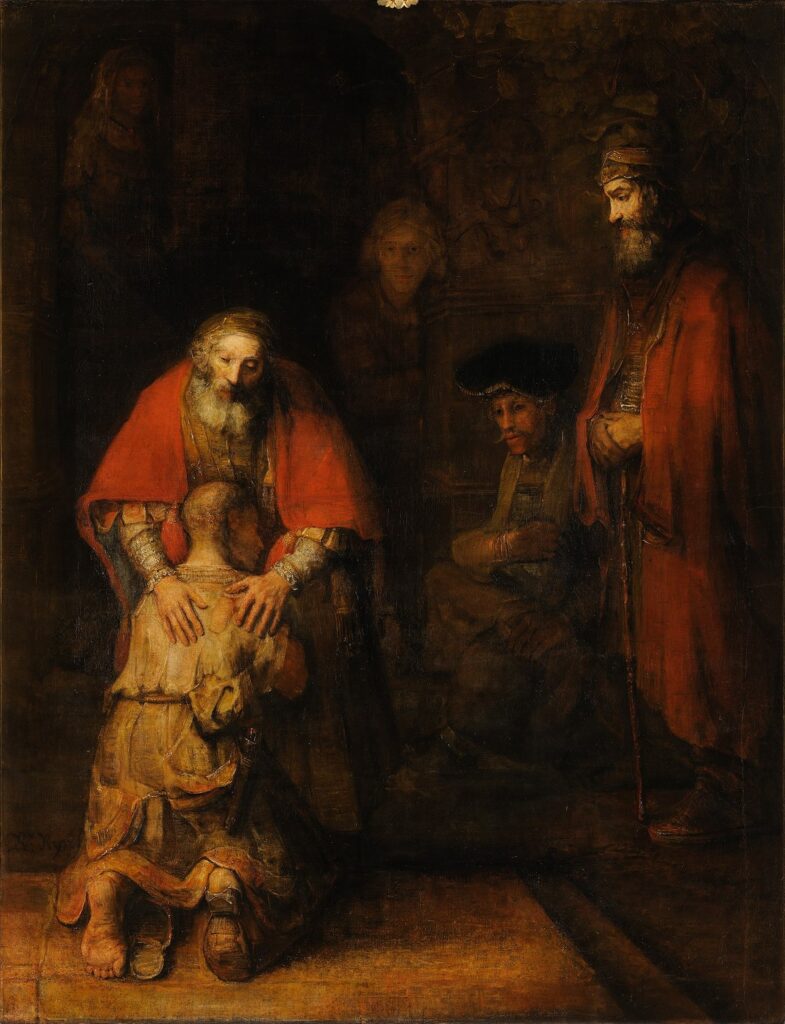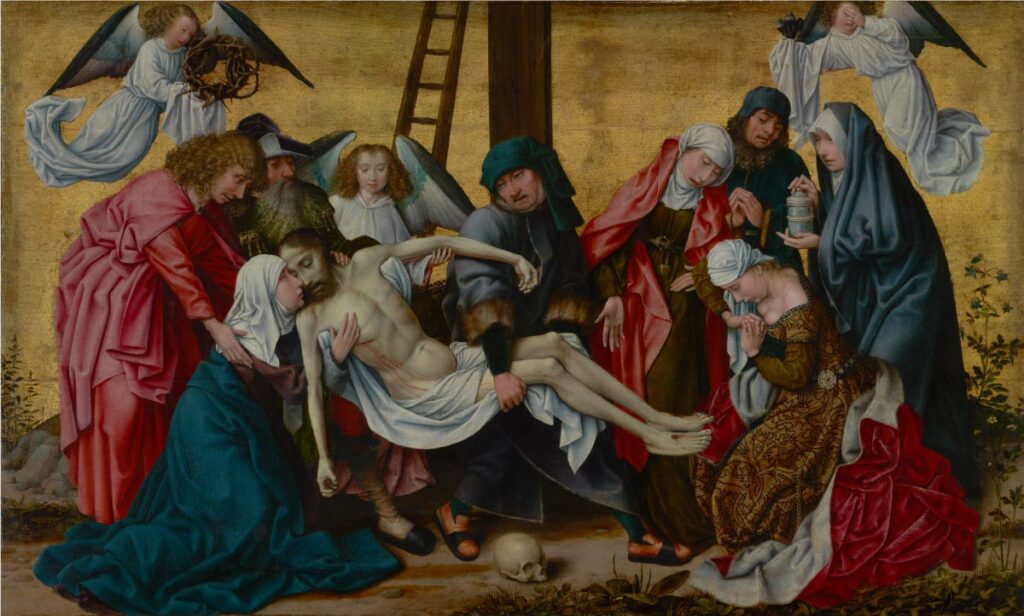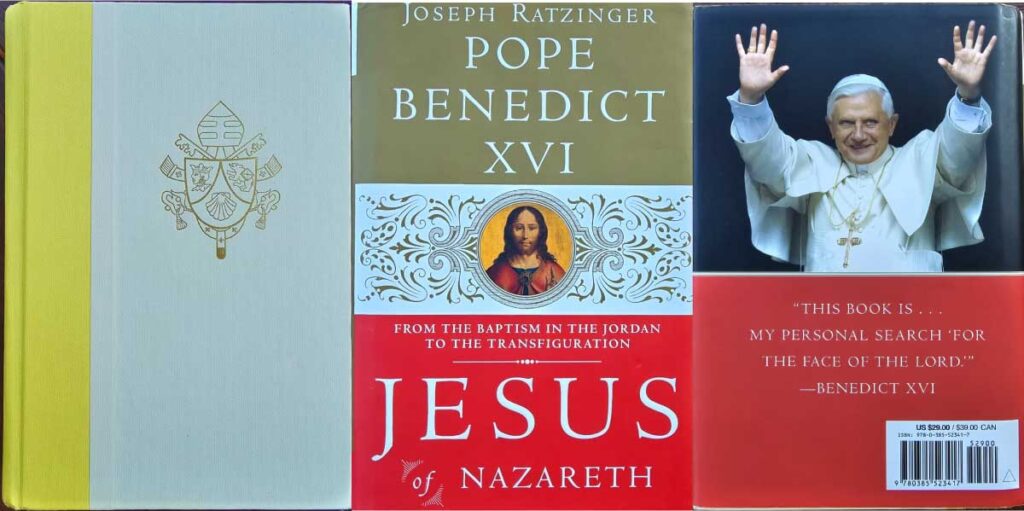The Timeless Appeal of the Prodigal Son
The parable of the Prodigal Son is one of the most beloved and powerful stories in the Bible. It portrays themes of sin, repentance, forgiveness, and the unconditional love of a merciful father. Jesus uses this story to illustrate God’s boundless mercy and the possibility of redemption for all who turn back to Him. As Pope Benedict XVI reflects, the parable speaks not only of the younger son’s journey to repentance but also of the elder son’s struggle with bitterness and the father’s overwhelming love for both his sons. In this story, we see a reflection of our own spiritual journey and the nature of true freedom.
The Younger Son: A Search for Freedom
The parable of the Prodigal Son begins with a younger son who demands his inheritance from his father. He leaves home and goes to a “far country” (Luke 15:13) where he squanders his wealth on reckless living. Benedict XVI interprets this journey as more than a physical departure. The son’s decision to leave reflects a deeper, interior estrangement from his father—representative of humanity’s estrangement from God.
The son’s quest for freedom is strikingly modern. Like many today, he believes that freedom is found in autonomy, in living without restrictions or obligations. However, this false sense of freedom leads him into a downward spiral. As Benedict notes, “He dissipates ‘his essence,’ himself.” The son’s self-centred pursuit of pleasure leaves him destitute, hungry, and reduced to the humiliating role of a swineherd—a profound symbol of his alienation and degradation.
This section of the parable highlights a key message: true freedom is not found in selfish autonomy but in a life aligned with one’s true nature and purpose. As Benedict reflects, “A false autonomy thus leads to slavery.” The younger son’s story reminds us that sin, while offering the illusion of freedom, ultimately enslaves us and takes us away from our true identity as children of God.
The Moment of Conversion: A Return to the Father
The turning point in the parable of the Prodigal Son comes when the younger son “comes to himself” (Luke 15:17). Realising the depth of his misery, he decides to return to his father and ask for forgiveness. His journey back home is not just a physical return but a profound act of repentance and humility.
Benedict XVI emphasises that the son’s realisation is a moment of conversion. The son recognises that he has moved away from the truth of his existence, and his decision to return reflects a deeper spiritual awakening. As he prepares his speech of repentance, we see his inner transformation: “Father, I have sinned against heaven and before you; I am no longer worthy to be called your son” (Luke 15:18–19).
This moment of conversion, Benedict explains, is a journey of purification. The son’s sufferings have led him to an authentic understanding of himself and his need for his father’s mercy. In this, the parable offers a profound lesson about repentance: it is a journey home, a return to the truth of who we are and our relationship with God.
The Father’s Mercy: A Model of Divine Love
The father’s response to the son’s return is one of the most moving moments in the parable of the Prodigal Son. Rather than reprimanding or punishing the son, the father runs to meet him while he is still far off (Luke 15:20). His actions reflect the boundless mercy and forgiveness of God, who eagerly welcomes sinners back into His embrace.
Benedict XVI highlights the depth of the father’s love, noting that he does not even allow the son to finish his rehearsed speech. Instead, he orders his servants to bring “the first robe” and a ring, symbols of the son’s restored dignity and status as a beloved child. The father’s love is not conditional on the son’s actions; it is a reflection of God’s unconditional love for all of humanity.
This moment in the parable also speaks to the sacramental life of the Church. The “first robe” that the father gives the son represents the robe of grace that humanity lost through sin but is restored through repentance and the sacraments. As Benedict explains, the feast the father prepares for the returning son is a symbol of the Eucharist, the heavenly banquet where the repentant are welcomed into communion with God.
The Elder Son: A Lesson on Bitterness and Grace
While the younger son’s story is one of sin and repentance, the elder son represents another spiritual challenge: bitterness and resentment. When the elder son learns that his father is celebrating the return of his wayward brother, he becomes angry and refuses to join the feast. He complains to his father, “Lo, these many years I have served you, and I never disobeyed one of your commands, yet you never gave me a kid, that I might make merry with my friends” (Luke 15:29).
The elder son’s reaction reflects a sense of injustice. He believes that his loyalty and obedience should be rewarded, and he is bitter that his brother, who squandered his inheritance, is being celebrated. As Benedict XVI observes, the elder son’s bitterness reveals that, despite his outward obedience, he has not fully understood the father’s love. His obedience has become a burden, and he envies the “freedom” his brother had, even though that freedom led to ruin.
The father’s response to the elder son is a reminder of the true nature of grace. He tells his son, “Son, you are always with me, and all that is mine is yours” (Luke 15:31). The elder son’s position in the father’s house has always been secure, but he has failed to appreciate the gift of being in the father’s presence. The parable invites us to recognise that true joy comes not from comparing ourselves to others but from understanding the grace we have been given in our relationship with God.
The Two Sons: A Reflection on Human Nature
The parable of the Prodigal Son presents two distinct but equally important lessons about human nature and our relationship with God. The younger son’s story teaches us about the dangers of sin and the possibility of repentance, while the elder son’s story warns us of the pitfalls of pride and resentment.
Both sons are lost in different ways. The younger son is lost in his pursuit of false freedom, while the elder son is lost in his self-righteousness. Yet, the father’s love extends to both, offering forgiveness to the repentant and reassurance to the embittered. As Benedict XVI reflects, the parable invites us to “convert truly and to find joy in our faith,” whether we identify with the younger or the elder son.
Conclusion: The Prodigal Son and God’s Unfailing Mercy
The parable of the Prodigal Son is a powerful reminder of God’s unfailing mercy and the transformative power of repentance. Whether we find ourselves like the younger son, in need of forgiveness after wandering far from God, or like the elder son, struggling with bitterness and pride, the father’s love is always available to us. Jesus uses this story to show that no one is beyond redemption, and God’s grace is not limited by our past mistakes.
Benedict XVI’s reflections on the parable highlight its universal appeal and its deep theological significance. The story is not only about two brothers but about the human condition and our journey back to God. In the father’s embrace, we find the true freedom and joy that come from living in God’s love.
See the other chapter reviews of the first volume on Jesus of Nazareth here.




